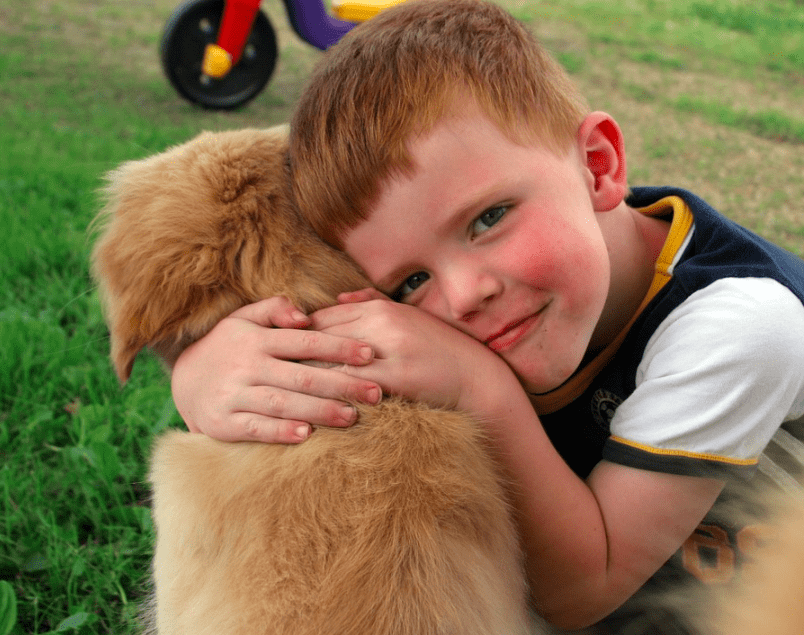Psychology experiments and tests can yield some interesting insights into human and animal minds. Like any other search for scientific answers, these experiments start out with a hypothesis to try to understand something.
An AskReddit thread asked commenters to share whatever they knew about psychology exams and the types of results they had. Here are some of their best answers.
15. Self-Fulfilling Prophecy
“I’m late but nobody has said it yet. The self-fulfilling prophecy studies are very important to social psychology and their findings have many real world applications.
Basically they brought together a group of kids and formed a class with a real teacher. They gave the kids a test for overall academic skill at the start of the course, but didnt really use the scores. Instead they told the teachers that a few students, picked at random, were very brilliant and scores very highly. They then observed the class for a long period of time and noticed that the teachers gave the kids they thought were brilliant much more attention. At the end of the study the kids took the test again, and they found that the kids who were randomly named brilliant at the start actually scores higher than the rest of the class. The kids, again, at the start didn’t score any different from the rest of the class, but through the self fulfilling prophecy they became the best in their class.
This obviously has tons of application in the world and especially education.”
14. The Monster Experiment
TW: childhood trauma
“The monster experiment! Although it is horrible how they left the children with mental health issues at the end, this experiment gave very good insight to how to parent a child.
On this experiment, they took groups of orphaned children and separated them into 3 groups. One was the control, the second were told they has a lips and were doing bad, and the third was told that their speech was perfect.
As the experiment went on, group 2 began developing lisps after being berated constantly. They became shy and reserved. They were scared to speak because they didn’t want to get in trouble because of their poor speaking skills. Group 3, however, had the opposite happen. They talked better, they were more willing to improve. They were encouraged to keep speaking and told that their speech was amazing and perfect.
By the end of the experiment, they had one group with no change, one group with now mentally ill children with a speech impediment, and one group with great speaking skills.
It truly shows that encouraging children is the way to go and that verbal abuse can be just as, if not more, harmful as physical abuse.”
13. The Monopoly Study
“The Monopoly Study by Paul Piff.
He basically brought two strangers into the lab together and had them play a game of Monopoly together. He randomly assigned one participant to start the game with twice as much money than the other and that participant also got to roll both dice to get around the board (i.e., the other participant started with half the money and could only roll one dice). At the end of the game when he asked the participants who started with more money why he won the game, they would chock it up to their excellent strategy and gamesmanship rather than the fact that they had started the game with way more resources.
It says a lot about how we deal with being born into a privileged state.”
12. The Three Christs Experiment
“The Three Christs of Ypsilanti
Psychologist forces three people who believe that they are Jesus Christ to live together.
It does not go well.
The psychologist, Milton Rokeach, had heard of a case where two women who believed that they were Mary, mother of Christ, were forced to live together and one of them broke free from their delusion.
So he figured, three Christs…what would happen.
They were angry at each other. Often had physical fights. They eventually started getting along by avoiding the topic. He would ask them about the others and each would say that the others were crazy. That they, of course, were the real Jesus.
No cures. Some unethical stuff. Interesting though.”
11. Milgram’s Small World Experiment
“I’m a huge fan of Milgram’s Small World Experiment. It is more sociology than psychology, but I still think it is really cool.
Milgram sends out 160 letters containing the name and address of a stockbroker in Boston to people in Omaha, Nebraska. They had to send it to someone they thought would get the letter closer, but they couldn’t mail it directly to the stockbroker. Interestingly, most people that sent on the letter sent it on to the same group of people on the 5th degree. It only took 6 people (hence the six degrees of separation) to arrive, on average.
It shows how interconnected our world is, even before the internet, which is happy to think about.”
10. This Candle Trick
“If you stare into a dimly lit (i.e. candle-lit) mirror for 10+ minutes you start to see hallucinations. What individuals see tends to vary, but they’ve used this as a test to simulate schizophrenia before because some see monsters / deformities / general weird shit.
I did a variation of it for a mate at uni and completely wimped out of it. After my face started not looking like my face anymore (I had a complete dissociation) I stopped looking and just waited out the time.
Edit: I can’t find the exact study as I don’t have journal access anymore but here’s a decent summary of it in laymans terms
Edit2: This is a weird visual trick that your brain can play on you, but the effects can seem super real so maybe don’t do this if you are susceptible to hallucinations / are a wimp with this kinda shit like me
Edit3: Thanks for the gold! and yes it is basically a scientific bloody Mary.”
9. Red is Influential!
“The influence of the colour red in sports: Judges were shown a video of a Tae Kwon Do match and awarded more points to the red competitor (versus the blue competitor). When the colours were digitally reversed, judges awarded more points to the other, now red, competitor.
Since there’s a lot more interest than I expected, here’s some more info: Red may be a signal of dominance as reddened skin is associated with higher testosterone (or possibly higher fertility in women). Wearing red may induce intrinsic psychological effects which increase dominance in addition to altering the perception of others. Researchers found that putting red leg bands on birds increased dominant behaviour, as they took the “lion’s share” of the food.
For my psychology degree dissertation, I presented photos of men to be rated on a scale of Friendly (0) to Threatening (10). Men received a higher threat score if I photoshopped their t-shirt to be red :).
8. The Negativity Bias Experiment
“There have been some experiments conducted, but the negativity effect/negativity bias is really sad to me: https://en.wikipedia.org/wiki/Negativity_bias
It basically says that negative things have a greater emotional and psychological toll on our health than positive/neutral things. So you got an A on a test, that’s great. But you totally fail a test, and the world crumbles and it’s a total disaster. A hundred things can go right and work perfectly throughout the day, but it goes totally undetected in our minds. Then someone cuts us off in traffic and we fume and rage. I learned about this theory almost three years ago and think about it all the time. Reminds me to appreciate and notice the many little things in my day that do go right.”
7. Mice Have Empathy
“Mice were put on two sides of a wall with a door in. Only the right mouse could open the door. Slowly, they filled the left mouse’s room with water and eventually when right mouse saw them in danger, they opened the door. However, mice that had previously been on he left side and were now on the right (mice who had previously been “wetted”) opened the door considerably faster because they knew how unpleasant it was to be in the other scenario. Basically mice have empathy
Link here: http://www.bbc.com/earth/story/20150514-rats-save-mates-from-drowning.”
6. The Car Crash Experiment
“The Car Crash Experiment.
It demonstrated that the way investigators word a question has an immediate effect on the subject’s memory of an event. It was part of a suite of studies by Elizabeth Loftus (with various other co-researchers) that began to call in to question the veracity of eyewitness accounts.
5. This “Drunk” Experiment
“One time I participated in a paid research experiment. I was basically tricked into thinking I was drunk.
I was placed in a room with 2 other people and we were instructed to drink vodka with cranberry juice over a period of time while we socialized. After we drank I was placed in a room where I had to read some flashing words on a computer. I felt pretty drunk at this point. When the researcher came back into the room he gave me my car keys and said I was never actually given alcohol. He briefly told me that because I was anticipating drinking for this experiment that my brain had tricked me into feeling the effects of being intoxicated.
I immediately snapped out of it and was completely amazed at how I felt.”
4. This Conformity Experiment
“Solomon Asch’s experiment on conformity. He set up a test wherein he would show 3 lines of different lengths to 5 or 6 individuals (I forgot the exact number) who had to state which line was the longest of the 3. The thing is, only the last individual is the participant and the others are actors paid to answer in a specific manner. For the first few questions, they choose the correct answer, but later on they start choosing the wrong one. The participants are conflicted as to whether they will say the correct answer or conform to the wrong answer as to not be judged by others or due to self-doubt of their own answers. In the end, most do conform.
It’s really interesting since it shows how powerful conformity is in the face of doubt, up to a point that some even question their own sanity during the test.
Another variation of the experiment also had interesting results. It had the same set up with 5 individuals with the last person being the participant. However, this time some of the actors say the wrong answer while 1 actor says the correct one. There was an increase in participants who would choose the correct answer and avoid conformity. It shows how much doubt one can have on oneself when alone, but be brought back to self-confidence when they find outside support.
Edit: Conformity in participants might be caused by either being afraid others’ judgement or due to self-doubt.”
3. Misattribution of Arousals
“Aron and Dutton (1974) – Misattribution of arousal.
Men who had just walked across bridge (either steady or unsteady) were approached by a female psychology student, posing to do a project on the effects of exposure to scenic attractions on creative expression. The men had to complete a questionnaire and write a short dramatic story about a picture she provided and she gave them her phone number if they had more questions. Men who walked across the shaky bridge were more likely to call her up because they misattributed the arousal from the bridge to the woman.
TLDR: watch a horror movie on the first date.
Edit: grammar. Sorry about the confusion.”
2. The Phantom Limb Experiment
“The phantom limb experiment is pretty fascinating.
Basically, you can be tricked into feeling something that’s not there.
Here’s an article about the experiment.”
1. Why We Expect Good or Bad Things to Happen To People
“Not just one experiment, but a whole thesis and series of works supporting it:
According to the Just world Fallacy we expect good or bad things to happen to people for a reason and go to pretty interesting length to make up for the lack of justice. Like someone winning the lottery and us thinking they deserve it.”
These psychological experiments showed us some interesting facets of animal and human behavior.
Have you heard of other experiments that prove we’re a little weirder than we thought?
Chime in with this insight in the comments!
The post Psychological Tests That Yielded Fascinating Results appeared first on UberFacts.















 (@Mongraal)
(@Mongraal) 










